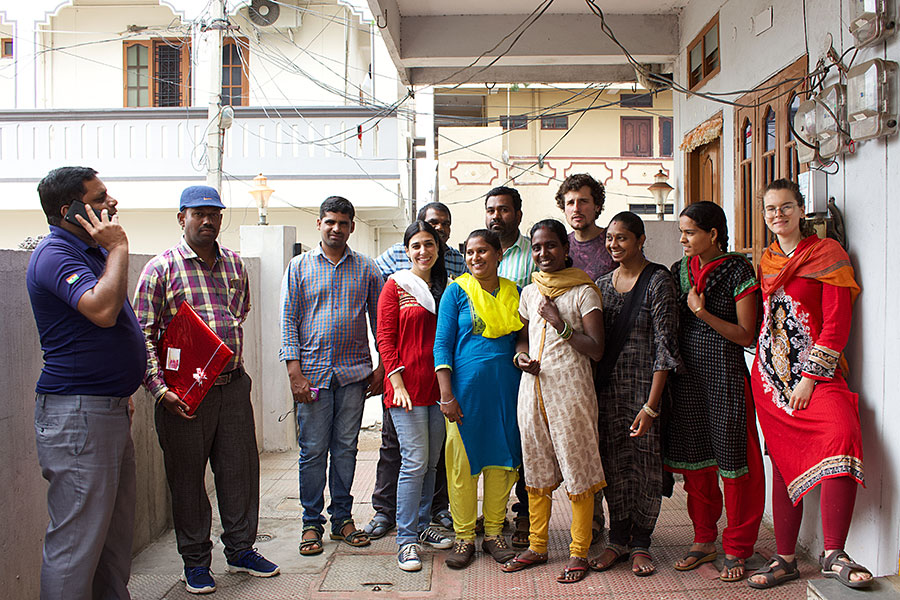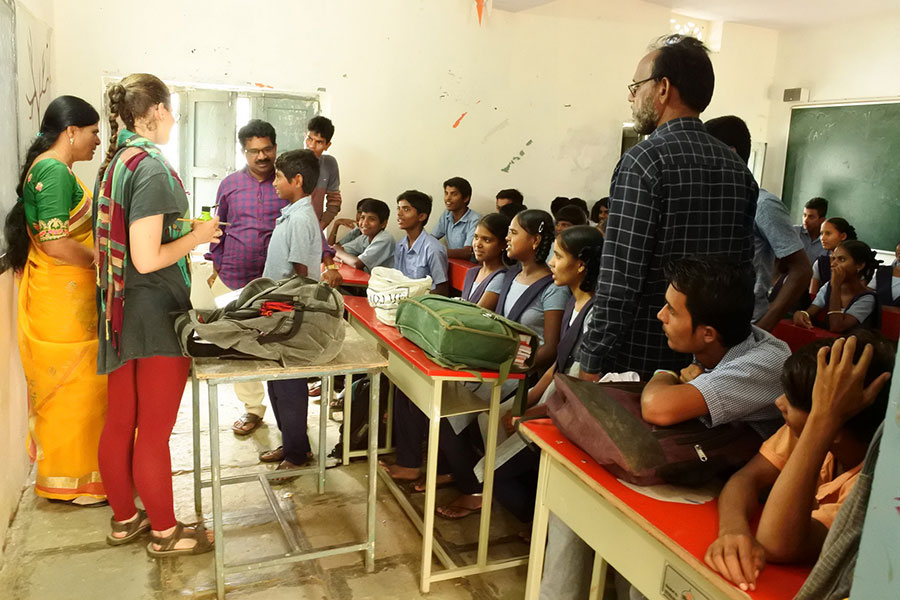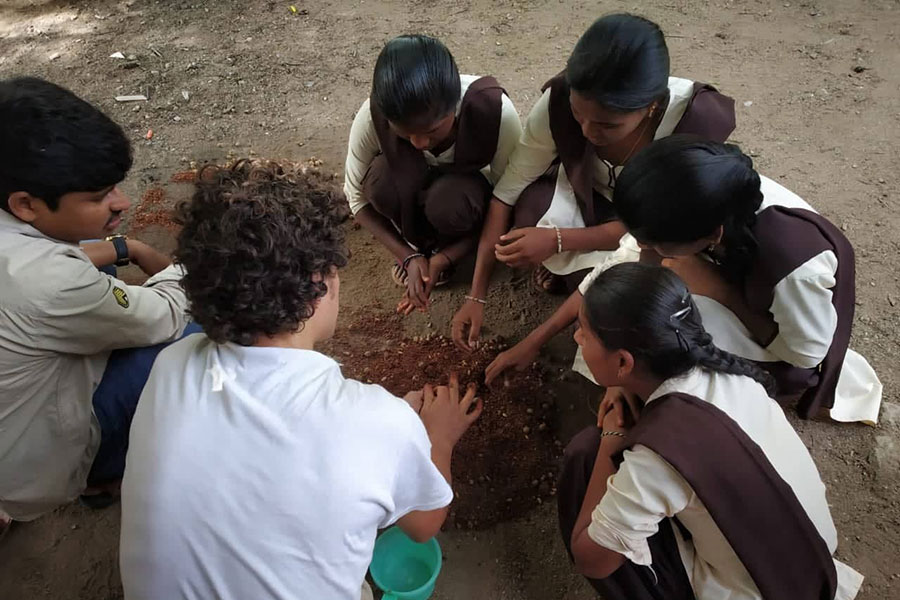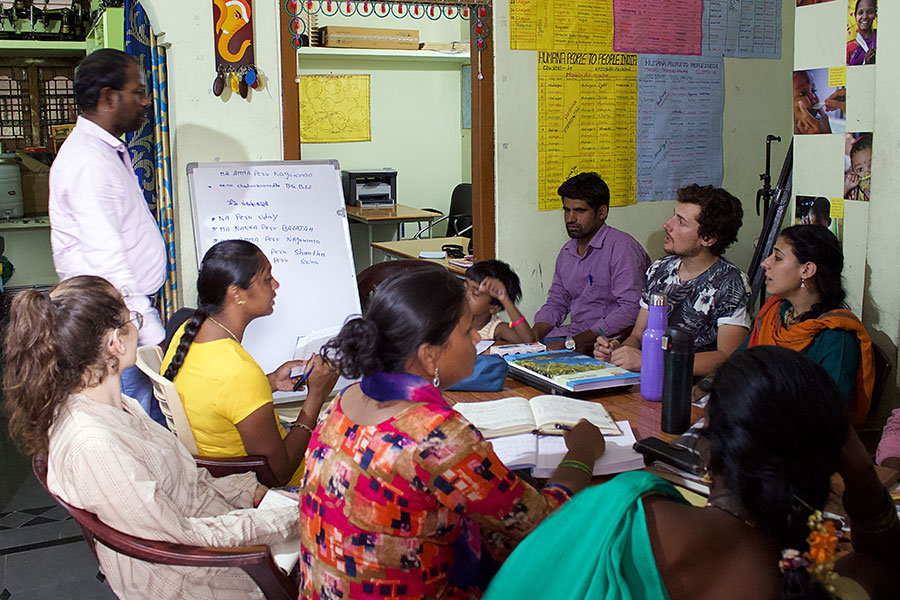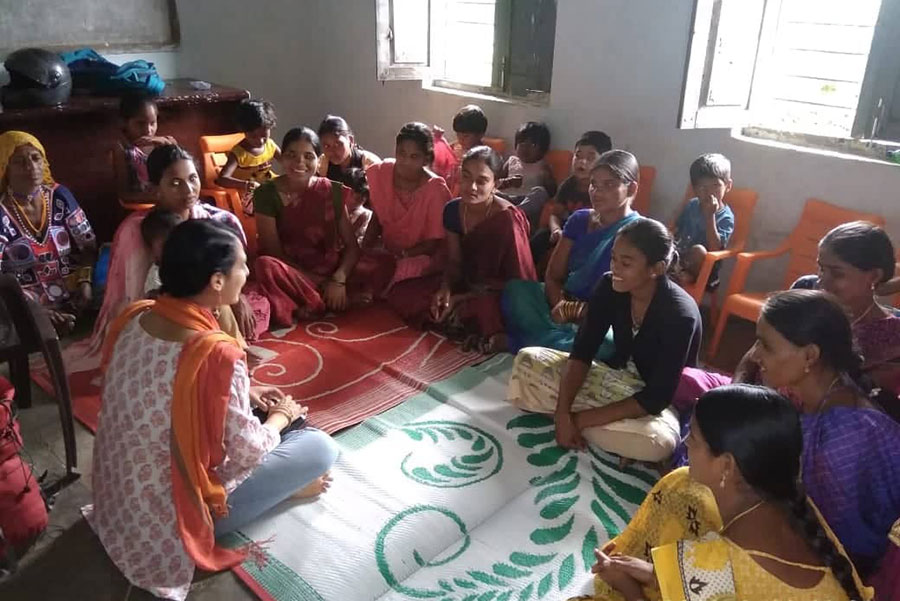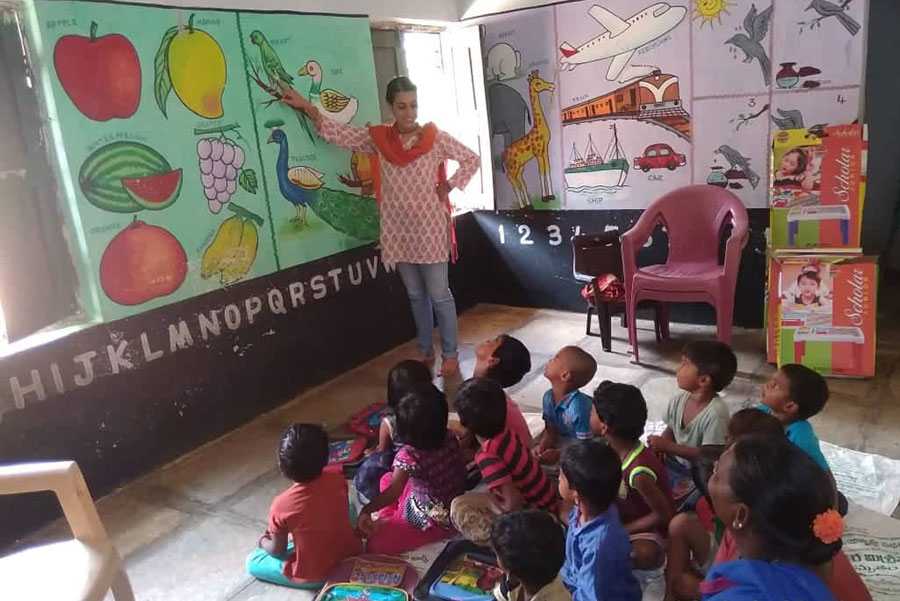CICD Climate Activists - volunteering with Humana India!
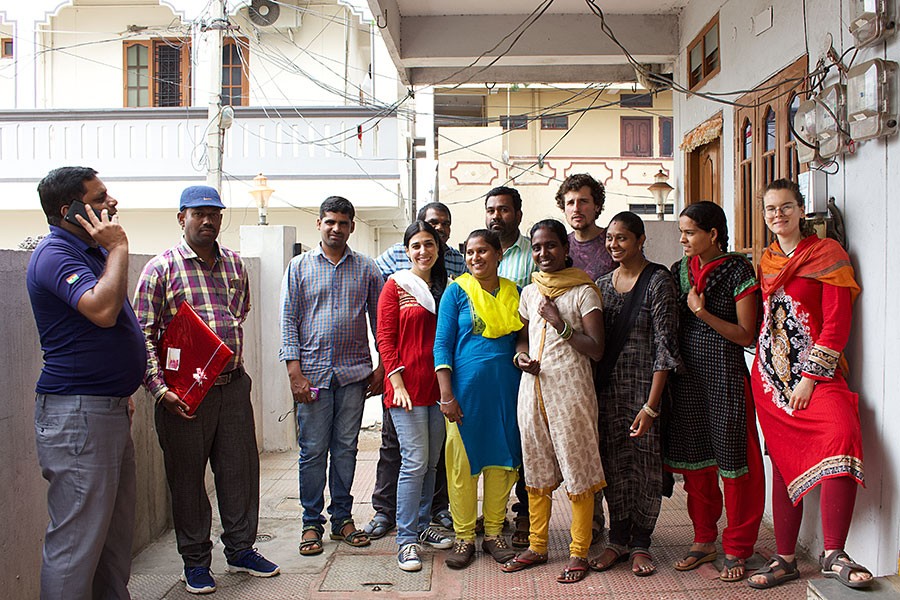 For the following climate activist teams, we recommend trying to develop kitchen gardens at Anganwadi centers and primary schools
For the following climate activist teams, we recommend trying to develop kitchen gardens at Anganwadi centers and primary schools
From the final report from May 2019 team - Pablo, Yessi, Beatriz and their teacher Miguel.
“The beginning of our period here was about get introduced to the project and see how each area works. After a while, we started to understand in which way we could help. First of all, we started to learn about Humana India and the Anganwadi centers (Academies for Working Children). We were asked to make some suggestions about cleaning, organisation and educational activities or games for children, in order to help staff and improve children's environment."
Sunil, the project leader, also asked us to participate in schools and high schools organising and giving environmental awareness lessons.
We made a presentation at the different schools and we carried out different activities:
- tree planting
- making fabric bags out of recycled material (to use intead of plastic)
- making a mural
- seed bombs”
- cleaning actions.
During the same period, we were visiting some other AWC centres where we also did activities with the children:
Painting, teaching numbers in English and Telugu, teaching the names of some fruits, vegetables and animals, singing, physical exercises to practice motor skills.....
In those centres, we helped staff with Women’s health groups meetings and we participated in teacher’s training giving some environmental recommendations.
We also helped staff members in the planning of the monthly activities, transcribing notes to excel as well as organising environmental presentation dates.
Finally, we participated in some tree plantations, buying and transporting trees from a nursery to take them to different villages for the subsequent tree planting action. This activity was carried out 3 times, in total there were around 3.000 trees planted!
Some of the things we have learnt through this experience:
- We have learnt how to work as a team, considering the timing and plans of the whole crew. To do so, we have understood that is important to respect others rhythm such as ours, trying to don’t push and don't be a load.
- We have developed our improvisational skills due to field work, when plans often change from one moment to another.
- In terms of communication, we have learnt how to understand and be understood using a few words, but mostly gestures, sounds, and some key-words.
- Recognise our limits and learn how to act according to them. Those limits are related to health, communication, time, scope…
Improvements of the project
Firstly, we noticed that staff members had learned to better understand and explain environmental issues.
This month they started to bring environmental topics by themselves to the meetings or the environmental presentations.
This was also helpful for the teacher’s training: we could see that they children started to make more activities with the teachers.
Also, we could feel an improvement in women's health group meetings: some of the mothers and pregnant women started to participate actively.
Regarding tree plantations: we could observe that when we planted the trees with teenagers, they were extremely motivated to do the job and we could feel their happiness for doing something good for the planet. So, we highly recommend to involve teenagers and children in these kind of environmental actions.
“Seed bombs actions “ - for environmental regeneration
Seed bombs are the main component of a reforestation technique developed by Masanobu Fukuoka. The main ingredients to prepare them are:
- Seeds.
- Clay.
- Water.
- Work and fun!
After making the seed bombs, the purpose is to throw them away in nature, mainly where there are no trees. Clay will protect the seeds until it rains, when the clay is melted down and seeds sprouted.
We bought some trees seeds like neem, guava,tek, and the clay was available outside of the highschools. This activity was very funny for everyone to work with our own hands and to be involved in environmental regeneration.
Our results and conclusion
During the entire period that we spent in the project we reached:
- 29 presentations in high schools, and in other meetings
- 6 tree plantation actions
- 10 environmental actions in high schools
We are very satisfied working together with the project and the staff members, they were open to help us with our tasks, to translate whenever it was needed and to improvise in their plans to make our job possible.
Regarding to our job, in general terms, we are happy with what we carried out here, with small actions to bring consciousness about the environment and also, about the children’s development in Anganwadi centers, although we faced a lot of barriers such as language, the difference of culture, health issues and some organisation difficulties.
For the following climate activist teams, we recommend trying to develop kitchen gardens at Anganwadi centers and primary schools. Also, there is an issue in some centres with lack of toilets.. The issue of garbage is also important, we recommend cleaning and awareness campaigns.
Finally, we experienced many difficulties in adapting to the life in India, so our main recommendation is to take enough time to understand the culture and adapt to it, and take good care of your health.




